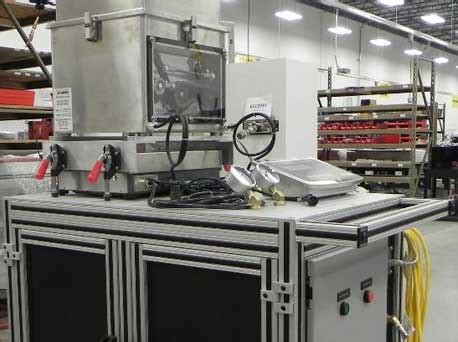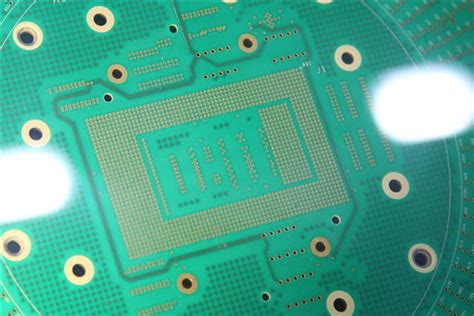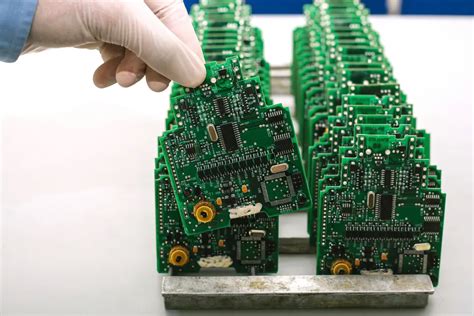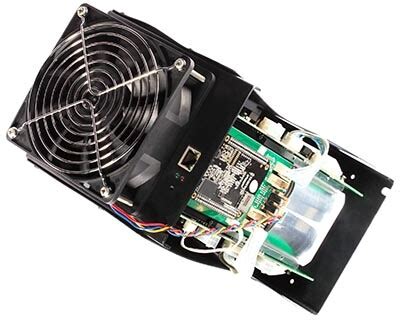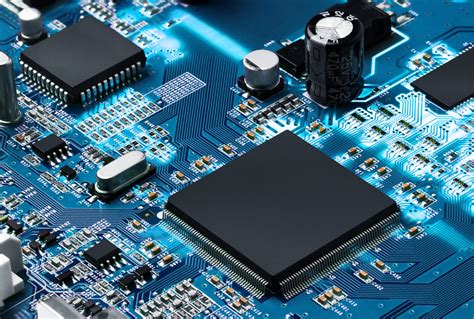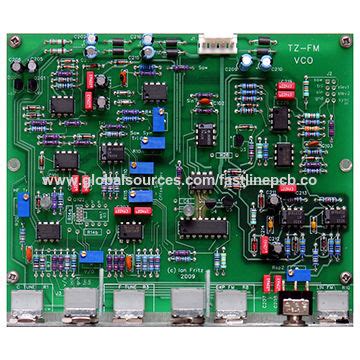Unlocking Efficiency: The Power of Turnkey Assembly Solutions
Key Takeaways
The implementation of turnkey assembly solutions is reshaping the landscape of modern manufacturing by simplifying the often intricate processes involved in production. A key aspect of this transformation is how pcb assembly and pcba methodologies are integrated into comprehensive systems that are ready to use right out of the box. Businesses no longer need to manage multiple suppliers or deal with logistical nightmares when sourcing different components. This streamlined approach not only saves time but also enhances overall productivity. By utilizing turnkey assembly, organizations can focus their efforts on core competencies, which contributes to better allocation of resources. Moreover, with improved quality control measures inherent in these solutions, manufacturers can ensure that every unit produced meets the highest standards. Embracing such innovative systems not only fosters operational efficiency but also positions companies to respond adeptly to market demands and accelerate project timelines, thereby driving long-term success in an increasingly competitive environment.
Understanding Turnkey Assembly: Definition and Concepts
Turnkey assembly refers to a comprehensive production approach that offers businesses a streamlined and efficient means of bringing their products to market. In this context, it involves providing fully integrated systems that encompass everything from design and components to assembly and final testing. A cornerstone of this method is PCB assembly (or PCBA), which is essential for modern electronic products. By adopting a turnkey assembly model, companies can significantly reduce the complexity associated with sourcing multiple suppliers for different components. This not only minimizes the risk of miscommunication but also ensures that all elements work harmoniously together from the outset. Moreover, turnkey solutions often come with built-in expertise in quality assurance, which aids in enhancing overall product quality through rigorous testing and validation processes. Thus, businesses can focus on their core functions while leveraging these innovative solutions to achieve greater operational efficiency and adaptability in an increasingly competitive manufacturing landscape.
Advantages of Turnkey Assembly Solutions in Modern Manufacturing
In today’s competitive manufacturing landscape, turnkey assembly solutions offer significant advantages that can transform production processes. By providing an all-in-one framework, turnkey assembly reduces the need for businesses to engage in the complex task of sourcing multiple components. Instead, manufacturers can focus on integrating systems like pcb assembly and pcba, leading to increased overall efficiency. These solutions are designed to deliver ready-to-use systems that simplify operations and enhance workflow.
One of the notable benefits of these solutions is the time savings they facilitate. With a streamlined approach to production, companies can drastically cut down on project timelines and accelerate their time-to-market. This agility not only enables businesses to respond quickly to customer demands but also fosters innovation by freeing up resources for research and development.
Another essential advantage is improved quality control. By utilizing consolidated turnkey systems, organizations can employ standardized processes that minimize inconsistencies and reduce errors in production. The integration of high-quality components ensures that the final output meets rigorous industry standards, which is vital for maintaining customer trust.
The financial implications are equally compelling; organizations embracing turnkey assembly solutions often observe reductions in operational costs due to enhanced efficiency and decreased labor requirements. This allows manufacturers to allocate resources more effectively, ultimately driving profitability.
To illustrate these concepts better, refer to the table below outlining key advantages:
| Advantage | Description |
|---|---|
| Time Savings | Streamlined processes lead to faster production cycles |
| Improved Quality Control | Standardized practices reduce inconsistencies in products |
| Cost Efficiency | Lower operational costs due to reduced labor requirements |
| Increased Focus on Core Competencies | Allows organizations to concentrate on primary business functions |
In conclusion, embracing turnkey assembly solutions not only simplifies complex manufacturing processes but also enhances productivity and quality—creating a robust foundation for sustained success in a fast-paced market environment.
Streamlining Production: How Turnkey Assembly Reduces Complexity
In today’s fast-paced manufacturing landscape, the importance of turnkey assembly cannot be overstated. By adopting a turnkey assembly approach, companies can effectively eliminate the often convoluted process of sourcing and coordinating multiple components necessary for production. This not only simplifies operations but also serves to enhance the overall efficiency of the production cycle. With pcb assembly or pcba as pivotal elements in electronics manufacturing, using a comprehensive turnkey solution integrates these components seamlessly, resulting in fewer errors and quicker turnaround times.
“Streamlining operations through innovative solutions is key to maintaining a competitive edge.”
In essence, the turnkey assembly model offers a holistic framework that encompasses design, fabrication, and assembly—providing businesses with ready-to-use systems that align directly with their operational goals. This approach allows companies to redirect their focus toward their core competencies, fostering an environment where innovation can thrive while ensuring high standards of quality and performance. Thus, by reducing complexity through this streamlined method, organizations can maintain agility and resilience in meeting industry demands. Embracing such solutions paves the way for sustainable growth and continued success in an ever-evolving market.
Cost Savings and Efficiency: The Financial Benefits of Turnkey Solutions
Implementing turnkey assembly solutions can lead to significant cost savings and enhanced operational efficiency for businesses. By offering ready-made solutions tailored to meet specific needs, companies can eliminate the tedious process of sourcing individual components. This not only reduces overhead expenses associated with inventory management but also minimizes the risks of production delays caused by unavailable parts. When it comes to pcb assembly and pcba, using comprehensive systems enables firms to streamline their operations, allowing them to bring products to market faster, ultimately increasing their competitive edge. Additionally, deploying turnkey solutions means that businesses can focus their resources on their core competencies rather than being bogged down by logistical challenges. The financial benefits extend beyond immediate savings; companies adopting these approaches frequently report improved cash flow management as the predictable costs associated with turnkey assembly contribute to more accurate budgeting and forecasting. Consequently, embracing this efficient model not only supports short-term financial goals but also ensures sustained growth in a rapidly evolving market landscape.
Enhancing Quality Control Through Turnkey Assembly Practices
The integration of turnkey assembly practices significantly elevates quality control in manufacturing processes. By employing turnkey solutions, companies can ensure that every component, such as pcb assembly and its corresponding pcba, adheres to stringent quality standards right from the outset. This method avoids the pitfalls often associated with traditional assembly lines, which can be prone to errors due to fragmented sourcing and independent coordination of parts. With a turnkey assembly approach, all processes are centralized, providing a cohesive framework that guarantees uniformity and precision across each production stage.
Moreover, the pre-assembled nature of turnkey solutions allows for earlier detection of potential quality issues, enabling manufacturers to address them swiftly before they escalate into larger problems. Each pcb assembly undergoes rigorous testing as part of the integrated system, thus instilling confidence in product performance and reliability. This emphasis on proactive quality management not only fosters enhanced product quality but also reduces waste and rework costs associated with defects. Ultimately, by adopting a strategic focus on comprehensive quality control, organizations can fully leverage the benefits of their turnkey assembly initiatives and secure a competitive edge in today’s market.
Case Studies: Successful Implementation of Turnkey Solutions
In recent years, numerous organizations have successfully integrated turnkey assembly solutions into their manufacturing processes, resulting in remarkable enhancements in efficiency and productivity. A notable case is that of a mid-sized electronics manufacturer that faced challenges with fragmented sourcing and extended assembly timelines. By transitioning to turnkey solutions for their PCB assembly needs, the company experienced a significant reduction in lead times. The new supplier provided an all-inclusive package that encompassed everything from design to delivery, streamlining workflows and minimizing the risk of errors during production. This shift not only reduced overhead associated with coordinating multiple vendors but also fostered a more cohesive quality control mechanism throughout the manufacturing process.
Another exemplary case involves a medical device company struggling with compliance issues related to its PCBA operations. By adopting a comprehensive turnkey assembly approach, which featured rigorous quality checks and standardized procedures tailored to industry regulations, the organization enhanced its product quality while ensuring adherence to safety standards. This commitment not only improved customer satisfaction but also boosted sales by increasing the speed of product rollout in a competitive market.
These case studies highlight how the adoption of turnkey assembly can lead to substantial improvements across various sectors by facilitating collaboration among teams and ensuring that projects remain on track, ultimately positioning companies for sustainable growth in the dynamic landscape of modern manufacturing.
Future Trends in Turnkey Assembly and Manufacturing Innovation
The landscape of turnkey assembly is on the verge of significant transformation, driven by advancements in technology and evolving market demands. As companies increasingly recognize the potential of pcb assembly and pcba solutions, there is a growing trend towards integrating automation and intelligent systems within turnkey frameworks. This not only streamlines operational workflows but also heightens flexibility, allowing manufacturers to adapt swiftly to changing production requirements. Innovations such as the Internet of Things (IoT) and artificial intelligence (AI) are set to enhance real-time monitoring and data analytics within assembly processes, ensuring improved quality control and faster decision-making capabilities. Moreover, sustainable practices are gaining traction; many businesses are now prioritizing environmentally friendly practices when selecting assembly systems. This not only supports corporate responsibility but can also yield cost savings by optimizing resource use. As we look towards the future, it is evident that embracing these trends will empower companies to achieve greater efficiency and maintain a competitive edge in an ever-evolving market landscape. Ultimately, the convergence of emerging technologies with turnkey solutions signifies a promising horizon for manufacturing innovation that will continue to revolutionize how products are designed, assembled, and delivered.
Choosing the Right Turnkey Assembly Provider: Key Considerations
When selecting a turnkey assembly provider, several key factors must be evaluated to ensure a successful partnership. The first consideration is the provider’s expertise in pcb assembly and their ability to deliver quality pcba services. It is crucial to assess their experience in handling projects similar to yours, as well as their understanding of specific industry requirements. Additionally, examining the provider’s quality assurance processes is essential; a rigorous quality control system ensures that the components are not only assembled correctly but also meet industry standards.
Another important factor is the scalability of their solutions. As businesses grow, they may require more complex or larger-scale assemblies, and a capable provider should be able to adapt accordingly. Communication plays a pivotal role in this partnership; transparent and consistent communication can prevent misunderstandings and facilitate smoother operations.
Furthermore, consider the technological capabilities of the provider—whether they utilize advanced equipment or innovative techniques that can enhance overall productivity. Finally, evaluating customer support services can directly impact project timelines and address any unforeseen challenges promptly. By considering these aspects, businesses can make informed choices that lead to successful outcomes with turnkey assembly solutions that align with their operational goals and boost overall efficiency.
Conclusion
In conclusion, the adoption of turnkey assembly solutions is revolutionizing the landscape of manufacturing, particularly in sectors where pcb assembly and pcba are critical. These solutions not only simplify production processes but also provide a framework for businesses to enhance their operational efficacy. By integrating comprehensive systems that are ready for immediate use, organizations can eliminate the tediousness associated with piecemeal sourcing and assembly. This holistic approach leads to significant time savings and allows companies to concentrate on their core competencies, as the complexities of managing multiple vendors are reduced. Moreover, the financial benefits associated with these solutions cannot be understated; they enable firms to lower overhead costs while simultaneously improving overall productivity levels. As industries continue to evolve and technological advancements pioneer new frontiers in production efficiency, embracing turnkey assembly will undoubtedly play a pivotal role in maintaining competitive advantages in a fast-paced market. Companies that prioritize this methodology will find themselves better positioned to meet consumer demands swiftly and with superior quality control measures in place. Ultimately, turnkey solutions represent not just an innovation in processes but a transformative leap towards a future characterized by enhanced productivity and profitability.
FAQs
Turnkey assembly solutions play a pivotal role in modern manufacturing, particularly within the realm of PCB assembly. When businesses opt for these comprehensive systems, they significantly streamline their operations, allowing them to focus on their core competencies. One of the frequently asked questions revolves around the integration of PCBA (Printed Circuit Board Assembly) into turnkey solutions. This integration is critical because it simplifies the entire manufacturing process from start to finish. Companies benefit from reduced lead times and improved efficiency by utilizing ready-to-use platforms that encompass sourcing, assembly, and quality control.
Another common inquiry pertains to how turnkey systems enhance quality assurance. With turnkey assembly, businesses can implement standardized processes that guarantee the consistency and reliability of their products. These practices are especially beneficial in industries where precision is paramount, as they minimize the risks associated with manual operations. As a result, companies can achieve higher overall productivity without compromising quality.
Furthermore, many organizations wonder how they can select an ideal turnkey assembly provider tailored to their specific needs. Factors such as expertise in pcb assembly, customization capabilities, and support services should be prioritized when making this crucial decision.

